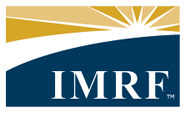Call IMRF First!
You can face serious financial consequences if you don’t follow the laws that apply to receiving a public pension while working for a public sector employer. You must call IMRF if you plan on working for any IMRF employer after you begin receiving your IMRF pension -- even as a volunteer or an independent contractor.
How working while receiving a pension can hurt you financially
If you are working for an IMRF employer and your pension should be stopped, but you continue to receive it, you may have to pay back a significant amount of money. IMRF is required by law to:
- Recover the total amount of all pension payments you received when they should have been on hold.
- Collect the total amount of the member contributions you should have been making during this time.
This can add up to a large amount of money. You may have to pay this money back from your future pension payments, which can significantly reduce the amount of your pension for a long time—sometimes for many years.
Separation of Service Rules
To comply with the Pension Code and IRS regulations, the IMRF Board has adopted new separation of service rules.
New Rules Effective January 1, 2021
These rules apply if your IMRF termination date is on or after January 1, 2021:
- To be eligible to start an IMRF pension, when you retire, you cannot be working in any capacity for any IMRF employer. This includes temporary or part-time work (regardless of the number of hours worked), volunteering, or working as an independent contractor or leased employee. One exception exists for retirees who are elected or appointed to an elected position, as long as no part of their pension is based on service from that elected office.
- Before your pension start date and within 60 days after, no pre-arrangement (even an informal one) can be made between you and an IMRF employer that you will return to work. This includes temporary and part-time work (regardless of the number of hours worked), volunteering, or working as an independent contractor or leased employee. If a pre-arrangement is made prior to or within 60 days after your pension start date, you will not be eligible to receive an IMRF pension.
- You cannot work for any IMRF employer for at least 60 days after your pension start date. After 60 days from the pension start date, you may return to post-retirement work for an IMRF employer, as long as there was no pre-arranged agreement made before retirement. If you return to work, the usual return to post-retirement work rules will apply.
- The day you stop working is not the same as your pension start date. Your pension start date will be the first day of the month for which you receive a retirement annuity payment. Prior to starting any post-retirement employment, IMRF strongly encourages you to contact IMRF to verify your compliance with the separation of service requirement.
Consequences of Not Separating from Service
IMRF will immediately suspend your pension if you perform any type or amount of work for any IMRF employer within 60 days of your pension start date, or if you prearrange returning to employment with an IMRF employer after your pension start date. If you violate this policy, you must pay back all pension payments that you have received, because you did not truly separate from service.
For More Information
For detailed information about Separation of Service Rules, read General Memo 686 or read the full resolution here.
Overview of Return to Work Rules
Return to work rules are complex, and not all rules are listed on this page. Some of the main points include:
- If you return to work for an IMRF employer, you must keep track of the hours you work. If you end up working enough hours to reach your employer's hourly standard, you must immediately be enrolled in IMRF and your pension must stop, or you must immediately stop working. See the chart below for additional details. (An exception may exist for certain SLEP retirees, call IMRF for details.)
- If you retired under the IMRF Early Retirement Incentive, you can never work for any IMRF employer, even in a position that does not participate in IMRF or as an independent contractor. (An exception may exist for certain elected positions, call IMRF for details.)
- If you retired under the Reciprocal Act and are returning to work for a reciprocal retirement system, you should call all systems you retired under to find out how your pension could be affected.
- If you are a Tier 2 retiree, you have additional return to work restrictions. These restrictions include working for reciprocal systems even if you did not retire reciprocally, and performing work as an independent contractor. Call IMRF before returning to work for any public sector employer in Illinois.
| Rules for Returning to Work for an IMRF employer: | |
|---|---|
If you return to work for an IMRF employer, you must:
|
|
| If within these 12 months you: |
Then |
| Work below your employer's hourly standard (either 600 or 1,000 hours) | Your pension payments will continue. |
| Are approaching your employer's hourly standard (either 600 or 1,000 hours) but you want your pension to continue |
You must:
|
| Reach or exceed your employer's hourly standard (either 600 or 1,000 hours) |
|
| Unexpectedly reach your employer's hourly standard (for example you filled in for another employee and went over without realizing it) but you want your pension to continue |
You must:
|


